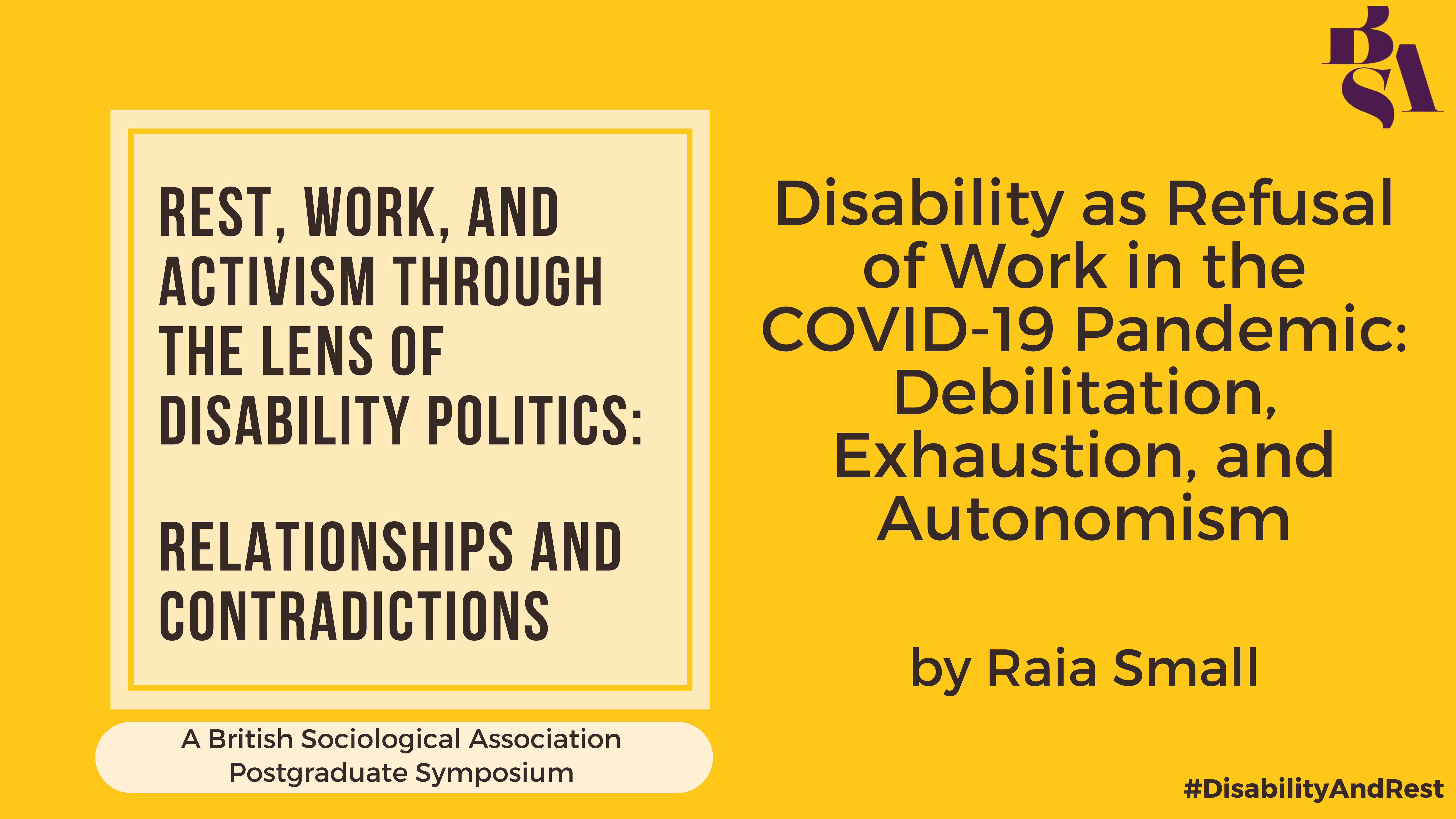
Author: Raia Small
Abstract:
Refusal is the shorthand for what can’t be named within the conceptual field of the enclosure. It expresses our unwillingness to be conscripted to man’s project or world. It is easier to index than to describe. All of the gestures bent on eluding the imposed terms of order and value— the me and the mine, the propertied earth. The vision of us in the clearing best conveys it.
— Saidiya Hartman
The COVID-19 pandemic revealed multiple threats to capitalists’ demand for continuous growth: grief, disability, care, and organized refusal of work as we know it. As a result, capitalists and their handmaidens in government and media have launched an attack against these features of contemporary life. At the moment, the COVID-19 pandemic has been declared over by the CDC and the WHO because these institutions have identified their primary concern as getting the workforce “back” to work. What are we going back from?
In 2020 and 2021, record numbers of people in the U.S. lived on unemployment, many earning more than they had in low-wage jobs. People all over the country stopped commuting, traveling, going to events, and consuming goods outside the home. Meanwhile, “essential” workers continued to labor and commute to their workplaces in hazardous conditions.
In May 2020, millions of people protested the Minneapolis police’s murder of George Floyd. State-facilitated rest (for many) enabled this outpouring of public grief, rage, and love in the form of the riot. There was a relationship between the logic of care in the early pandemic (wear a mask to protect others, flatten the curve, mourn the dead) and widespread refusal to accept the business-as-usual of police killing Black people in the ordinary places of public life. Give people money to live on, an eviction moratorium, and a rupture in the ordinary pattern of accumulation, and watch a police station go up in flames.
While the mainstream disability rights movement that brought us the ADA lauded inclusion in the workplace, the school, and the body politic, disability also holds radical potential as a site of refusal of work. I’m interested in exploring the relationship between disability, grief, and rest in a pandemic that’s disrupted our relationship to work, death, care, and being in public together. I’m interested in asking how disabled ways of being, caring, organizing, and surviving can challenge capitalist norms of work and health. During this forced return to the office, when the corporate media decries that “no one wants to work anymore,” how does disability, debilitation, and a renewed embrace of rest challenge capitalist production in the genealogy of the slowdown, the sickout, and the wildcat strike? How can the affect of refusing work, refusing productivity, and failing to be a healthy worker be mined as a site of disabled resistance?
Author bio: Raia Small is a writer and community organizer living in Oakland, California. She has organized with disabled people and seniors for mask mandates on transit and in healthcare since early 2022. Her work has recently been published in Midnight Sun, Peste, Copwatch.Media, Kaleidoscoped, and Make/shift. Her writing engages affective labor, illness and disability, Marxism, feminism, aesthetics, and feelings.

